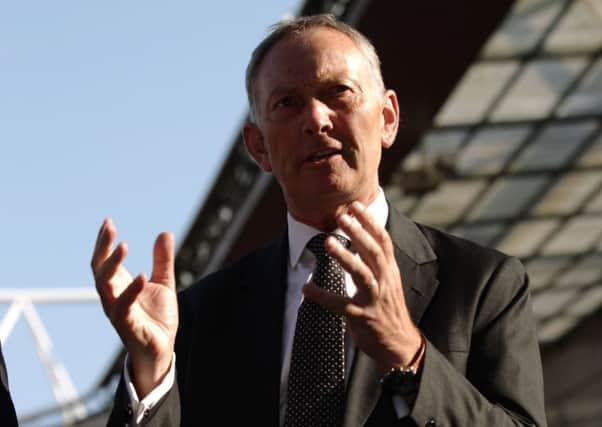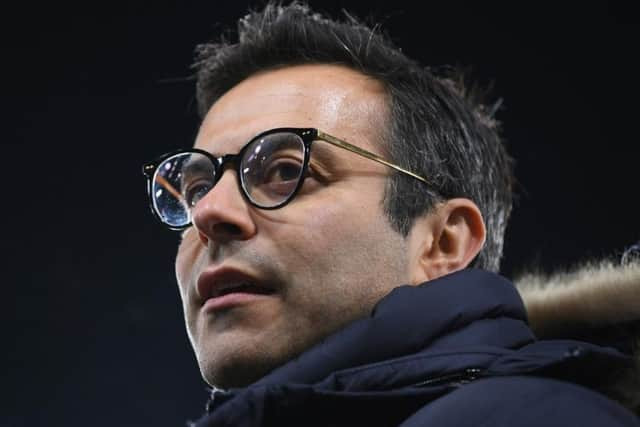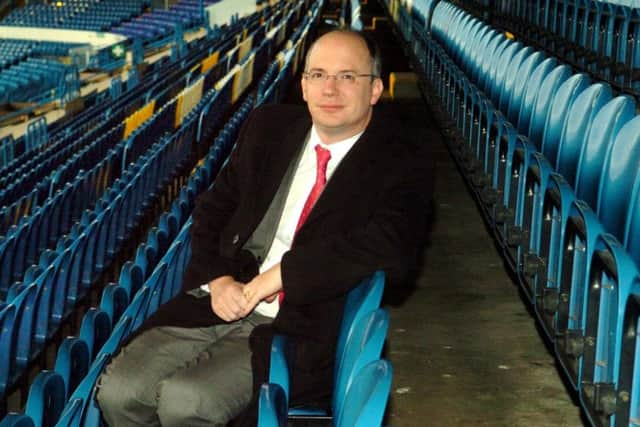Phil Hay: Disparity between Premier League and EFL aptly illustrated by TV deal debate


An obscenity in one man’s eyes is remuneration in another’s and the Premier League ploughing on by handing Scudamore his money while supporters/customers/consumers cried foul is all you need to know about the power of the paying public. There is too much gratitude for the Premier League’s extraordinary wealth-creation model for socialism to get a look-in.
Down in the EFL, Scudamore’s counterpart, Shaun Harvey, might find Santa to be less generous this Christmas. There are mutterings about a vote of no confidence in him as opposed to a golden handshake and owners at that level, particularly in the Championship, would happily embrace Scudamore’s magic. In 19 years in office, TV revenue in the Premier League rose from less than £700m to more than £5bn. Was Scudamore in the right place at the right time, the beneficiary of factors outside of his control? Or, as his £5m send-off implied, was the through-the-roof expansion down to his talent for growth? And more to the point when money talks, does anyone even care?
Advertisement
Hide AdAdvertisement
Hide AdThey care in the EFL, where broadcast money continues to look like the leftovers from a Premier League rights auction. Only in football could Sky’s latest offer of £595m for five years of televised matches be classed as loose change but the broadcaster was part of a £4.55bn offer to the top flight earlier this year so it shares responsibility for setting the bar high. Disparity is one of those things football does best: player contracts, commercial income, parachute payments and the wealth of individual owners. The San Francisco 49ers bought into Leeds United in May and must already understand how impossible an NFL style salary cap would be.


There are so many strands to the internal arguments over the EFL’s new television contract with Sky that even those clubs so fiercely opposed to it could not argue with the comment from Debbie Jevans, the EFL’s interim chair, that “managing a diverse group of stakeholders” is “challenging” (corporate speak for a nightmare). Diverse is the word; teams at the top end of the pyramid pulling in crowds of 41,000 while teams at the bottom post attendances of 1,600. The EFL negotiates collectively for a body of teams in which factions are inevitable and individual ambitions differ wildly, dictated by individual limitations. In short, it should not come as a shock to find that somewhere down the line a contract designed to suit both Aston Villa and Macclesfield Town would run into trouble.
Villa are like Leeds: very aware that Sky is not throwing close to £600m at the EFL for the privilege of televising Macclesfield each week. Even in the Championship, the number of live appearances made by a select number of sides tells you that some in the division are worth more to the broadcaster than others. It was there, quite openly, in the small print of the announcement made by the EFL on Monday evening. Championship clubs must each be televised at least twice at home next season, with no upper limit. Clubs in Leagues One and Two are to be televised no more than four times at most, excluding matches on the final day. The strategy is justified on the grounds of giving “as broad a coverage as possible in Leagues One and Two”. In the Championship, Sky is free to maximise viewing figures by harnessing the usual suspects.
On reflection, those clauses might bring the usual suspects, most of whom are leading the criticism of the EFL’s broadcast deal, to the point of asking whether the money they stand to receive from 2019 onwards – a guaranteed £3m with live appearance fees on top, the same for every club in the Championship – is proportionate to the exposure they give Sky and the EFL. Call it greed or self-interest but in the relevant boardrooms they will think of it as plain business sense. They will look at the golden thank-you Scudamore received for pushing TV earnings off the scale and wonder why they should be expected to accept a ceiling. The box-office members of Sky’s stable are going to want their pulling-power recognised.
Advertisement
Hide AdAdvertisement
Hide AdCould a collective EFL deal go much higher than Sky’s £595m offer? The governing body thinks not and it was at pains to say that the bid from Sky was the only one it could realistically consider. Some of the owners who are contesting it, Andrea Radrizzani included, argue that breaking up the rights into packages of games, as the Premier League has done, would attract multiple broadcasters and intensify the bidding process, though the difference that would make is a moot point and there is no avenue open to the EFL or its clubs to dramatically close the gap on the lucrative draw of the Premier League.


That, beneath the internal ructions, should be the real point of the scrap taking place: that the inflated riches of the Premier League and its powerful hold on TV cash has created below it a division in which owners frantically chase promotion at the same time as chasing financial losses, for as long as they can afford to live in that cycle. The Premier League is ‘all right Jack’ and so all right that it is handing over more to Scudamore than a Championship club might earn from broadcast payments in a year, defending the payment on the grounds of his “exceptional contribution to the success of the league”. Who is to say that he isn’t worth it but the distribution of TV money is perhaps like the country as a whole: the wealthy getting wealthier while everyone else turns on each other. If nothing else it is one way in which football reflects society.